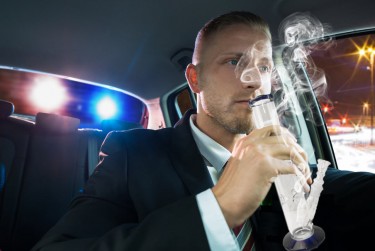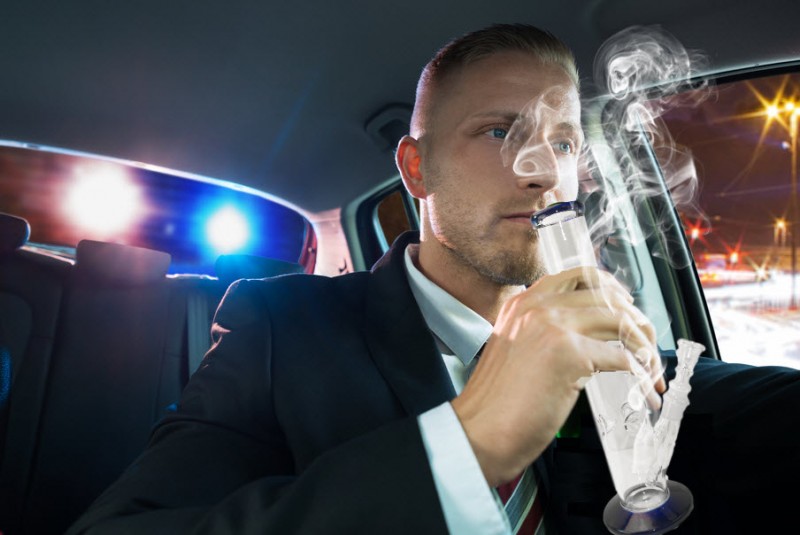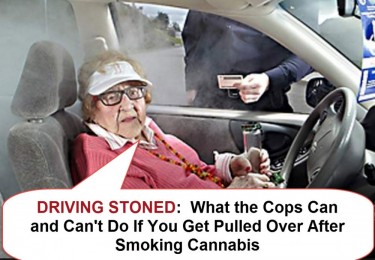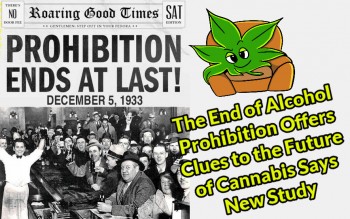Delaware Supreme Court: Cannabis Odor During Traffic Stop Not Probable Cause for Arrest

It is very easy for one to be easily carried away by the increasing wave of legalization for medicinal and recreational marijuana in many states in the US. Nonetheless, it is important to still remember that the natural product is still illegal when it comes to the federal government and there is no better way to show this than through law enforcement agents. The controversial nature of this arrangement easily gets many cannabis users in tough situations especially in federal parts of states where cannabis is legal.
Though we are still a long way from mainstream legalization on the federal scene, there is still some headway being made especially in the judicial system. This was exemplified by the Delaware Supreme Court where a recent ruling has caught the eye of many in the industry and raised the hopes of cannabis users for better days ahead. The ruling by the Delaware Supreme Court is to state that cannabis smell during traffic doesn’t stand as enough probable cause to warrant an arrest. This has been the reality for a while now until this proceeding opened up new possibilities to help protect cannabis users. A closer look into this case will show just why it is monumental.
Cannabis advocates in Delaware have long been craving for a win in the fight for further decriminalization of the natural herb and very few wins can be as monumental as the one they just had. Many believe it shows that the state of Delaware is beginning to take a pioneering stance when it comes to cannabis laws, a stance that many states will hope to follow soon. This ruling protected a 15-year-old who was judged to have been victimized concerning his rights on the account of the arrest.
The established grounds for the case were drawn from a 2019 traffic stop which resulted in a marijuana-related arrest. In this case, the court has previously ruled that the smell of alcohol under the driver’s breath doesn’t stand as enough probable cause for a DUI arrest. This established premise helped to stand the ground for the same application to the case of the 15-year-old who was arrested in similar circumstances.
A closer look at Juliano's Case
The actual case that brought this much uproar resulted from an incident in January 2019 at a Dover traffic stop. Officers believed that the driver of the SUV wasn’t wearing a seatbelt and so instructed all persons to alight the vehicle after which a search was initiated. The result of the search turned to be clean with nothing illegal found in the vehicle however drugs were found on two persons. Juliano, 15 at that time was taken to Dover Police Department where she was told she would be searched completely. The minor quickly chose to admit that she was in possession of a bag of marijuana and a bag of cocaine and turned them over.
The counsel for Juliano chose to address this matter in the Family Court by asking the evidence obtained during an illegal search be suppressed. This was however not granted as the suspicion that the driver was not wearing a seatbelt justified the stop. Likewise, the smell of marijuana was also upheld as being enough for the arrest. Juliano’s criminal history, he other implicated passengers, resulted in her being prosecuted for aggravated possession of marijuana and cocaine.
This ruling prompted Juliano's appeal to the Supreme Court where the pretext of the traffic stop was being challenged on the basis that the marijuana could have been for medicinal purposes. This appeal was denied and the case referred back to the Family Court for a more composite statement for the basis of the search. During the time of her arrest, possession of small amounts of marijuana by anyone u der 18 in Delaware was considered a misdemeanor. This was used by the court in stating that the court needed more probable cause to believe Juliano was in possession of marijuana also considering the fact that she was a juvenile.
The case was won on the basis that the arrests preceded the vehicle search which shows that the arrest wasn’t supported by probable cause. This is irrespective of the product of the eventual search and the fruits it might have yielded.
Reactions and Effects
Deputy Director of the National Organization for the Reform of Marijuana Laws Paul Armentano spoke on the ruling by stating that it is the first time the supreme court of any state will weigh in on such a matter. The issue of what counts as probable cause for being pulled over and marijuana arrests while driving has always been a gray area that many have tried to avoid in times past. He was however grateful that the Delaware Supreme Court chose to take a stance on this matter and lead the way for others to follow. Armentano believes that this shows growth and evolution on the part of the courts and signals a change in their attitude towards cannabis cases both in terms of the law and from a cultural standpoint.
The core fixation of the court on the matter is that suspicion alone cannot be used in justifying a warrantless arrest as more substantial probable cause needs to be established. Executive Director of the ACLU of Delaware Mike Brickner stated that this is a common occurrence in traffic stops where marijuana smell is easily used as a pretext for searches and arrests. This primarily is disrespectful to the Fourth Amendment rights of Delawareans' and many persons have been victims for too long.
Bottom line
To some, this might be a small win but to those in the cannabis industry and most cannabis reform advocates, it’s a big win. More in this light are bound to further raise awareness and create more breathing room for cannabis users. You can expect more of such rulings in favor of cannabis users going forward.
There is a shift in perspective occurring across all fronts in the United States, are we finally entering the age of total reforms to cannabis laws? Let us know your thoughts in the comment section below.
WHAT POLICE CAN DO WITH WEED IN YOUR CAR, READ MORE..
CAN POLICE SMELL WEED FROM OUTSIDE YOUR CAR, WHAT CAN THEY DO?
OR..
DRIVING STONED, WHAT THE POLICE CAN AND CAN'T DO TO YOU!








